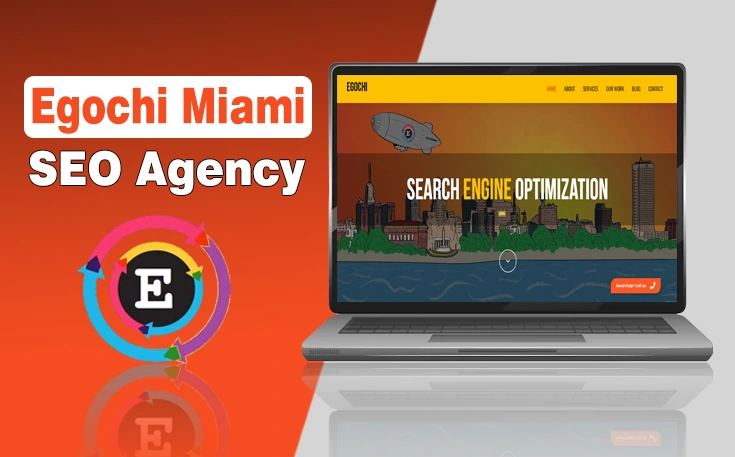The landscape of search engine optimization, or SEO, has always been dynamic, rapidly changing to keep up with technological advancements and shifts in user behaviour. Generative AI in SEO techniques has been one of the biggest game-changers in recent years. Search engine rankings, content development, and user experience are all being revolutionized by this cutting-edge technology. Generative Artificial Intelligence in SEO techniques utilizes machine learning algorithms to analyse vast data and generate optimized content. This improves search engine rankings and enhances the overall user experience by delivering more relevant and personalized results. As AI continues to evolve, it is expected to shape the future of SEO further, enabling businesses to stay ahead in the competitive online landscape.
This article will examine the role of generative AI in SEO how it is changing the digital landscape.
Role of Generative AI in SEO and Search Results
Creation and Optimization of Content
Generative AI has transformed content creation by automating the process of generating human-like text. Using sophisticated algorithms and machine learning models, this technology can identify trends in already-published content and produce fresh, contextually appropriate content. SEO practitioners may use generative AI to generate high-quality, keyword-rich content at scale, allowing them to keep up with the ever-changing demands of search algorithms.
Furthermore, generative AI can help with the search engine optimization of content. It can recognize and include pertinent keywords, enhance readability, and guarantee that the material aligns with the user’s intentions. These speed up the content development process and improve overall SEO performance.
Read Also: 10 Tips for Creating Content for Voice Search SEO
User Intent with Natural Language Processing
The ability of search engines to comprehend user intent and provide pertinent results is growing. Generative AI, with its NLP skills, is critical in understanding the intricacies of language and user questions. As a result, search engines can deliver more precise and pertinent search results. NLP allows search engines to go beyond just matching keywords and understand the context and meaning behind user queries. This enables them to provide more relevant information and improve the overall search experience for users. NLP can also help understand user preferences and personalize search results based on individual needs and interests.
Because of this, SEO professionals must pay attention to keywords and the intent underlying user queries when crafting content. By helping businesses match their content with the unique requirements and interests of their target audience, generative AI supports this attempt.
Customization and User Interface
Enhancing the tailoring of user experiences on websites is made possible by generative AI. Artificial intelligence (AI) algorithms can dynamically modify content, recommendations, and website structure by evaluating their behaviour and interests to suit specific visitors. This degree of customization raises customer satisfaction and has a beneficial impact on search engine rankings.
User experience metrics, such as bounce rate, time on site, and page load speed, are becoming increasingly important to search engines. With generative AI, websites may be more aesthetically pleasing and customized to each visitor’s interests, improving SEO performance. By leveraging AI algorithms, websites can adapt content and personalize the overall design and layout to cater to individual preferences. This level of customization enhances user engagement and encourages longer browsing sessions, ultimately boosting the website’s visibility in search engine results. AI-powered generative models can generate unique and compelling visuals that align with visitors’ interests, enhancing the website’s appeal and SEO performance.
Automation and Analysis of Data
Large volumes of data are thrown at SEO specialists; these data must be examined, evaluated, and understood to guide strategy. Generative AI simplifies this process by automating data analysis and offering actionable insights. Artificial intelligence (AI)-powered technologies enable SEO professionals to make well-informed decisions quickly, from seeing patterns to forecasting changes in search engines. By leveraging automation and AI-powered tools, SEO specialists can save time and effort manually analysing data, allowing them to focus on implementing effective strategies. These technologies provide quick insights and help identify trends and patterns that may need to be more easily visible to human analysts, enhancing the overall effectiveness of SEO campaigns.
Read Also: Common Technical SEO Issues That Actually Matter
Routine chores like picture tagging, backlink analysis, and meta-tag optimization can also be automated. This saves time and guarantees that every critical component of SEO is noticed, resulting in a more thorough and effective plan.
Using Generative AI for Optimizing Voice Search
As speech-activated gadgets and virtual assistants grow more ubiquitous, optimizing for voice search is critical for a strong SEO strategy. With its natural language processing capabilities, generative AI aids in understanding and reacting to the intricacies of voice-based questions. Through the creation of content that conforms to conversational language patterns and colloquial idioms, organizations can improve their search engine presence. This shift toward voice search optimization underscores the importance of SEO practitioners using generative AI in their content generation and optimization tactics.
AI-Generated Content Ethical Considerations and Bias
Ethical issues must be considered since generative AI is used extensively in SEO. Large datasets are used to train AI algorithms, and if these datasets contain biases, they may appear in the produced content. When verifying that AI-generated content is devoid of prejudices and compliant with ethical norms, SEO specialists need to exercise caution. It is critical to be transparent when revealing AI-generated content to users. As technology evolves, addressing ethical concerns becomes increasingly essential in preserving audience confidence and adhering to developing industry norms.
Conclusion
Generative AI has transformed the SEO market, providing businesses with unparalleled opportunities to optimize their online presence. By automating content production, increasing user experience, and strengthening data analysis, generative AI is quickly becoming a vital tool for staying ahead in the competitive world of digital marketing. As SEO evolves, those who embrace and adapt to the possibilities of generative AI are likely to reap the benefits of greater search rankings and enhanced online visibility. With generative AI, businesses can create high-quality, engaging content at scale, saving time and resources. The ability of generative AI to analyze vast amounts of data allows companies to make data-driven decisions and tailor their SEO strategies for maximum effectiveness.





